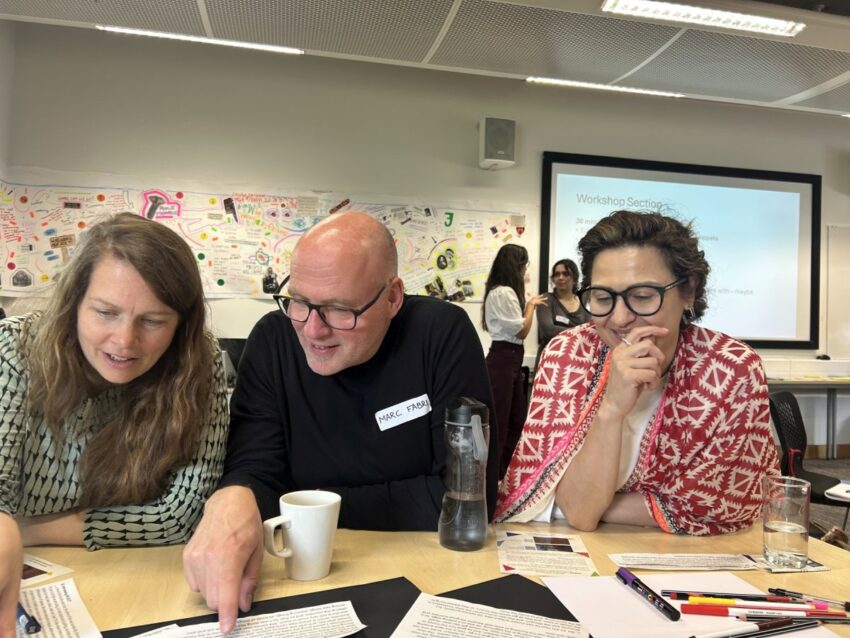On a bright day in Cambridge, the Lord Ashcroft International Business School at Anglia Ruskin University became a hive of energy as it hosted a workshop on Creative Methods and Outputs in Participatory Research. Organised by the UK Participatory Research Network, the event brought together researchers, artists, and practitioners from across the country, united by a shared commitment to inclusive, collaborative inquiry.
The day was rooted in the Network’s guiding ethos: that participatory research should not only be inclusive and democratic, but also imaginative, responsive and capable of embracing multiple ways of making meaning. With this in mind, the programme invited attendees to explore how creative methods can enrich every stage of a research project — from design and engagement, to dissemination and legacy.
A series of lightning presentations kicked off the day, showcasing innovative work that uses exhibitions, arts practices and museum-based approaches to create space for dialogue, storytelling and impact. These short talks sparked discussions and laid the groundwork for hands-on, collaborative activities that followed.
PARTICIPATE Research Cluster co-leads Mary, Anne and Marc delivered one of these lightninig presentations (download the slides). We presented the range of research that exists in the cluster, deeply rooted in values of collaboration, empowerment, and empathy, using creative methods not as tools of convenience or tokenism, but as core strategies for co-producing knowledge and experience.
Our presentation highlighted our toolkit of methods reflecting shared social values and inclusive practices:
-
LEGO Serious Play to help participants give form to complex, abstract ideas
-
Affective storytelling for co-creating narratives and shared understandings
-
Empathic interviewing to deepen insights during Design Thinking processes
-
Rapid, self-documenting workshop activities to support reflection and ownership
-
Speculative and aspirational exercises to explore imagined futures
-
Sensory-based analysis to tap into embodied knowledge
-
Intersectional and intergenerational approaches to promote inclusivity
We talked about how creative participatory methods consider ethics, relationships, and transformation. Cluster members use their artistic and design practice to advance knowledge and build capacity, engage in citizen science and make research tactile through objects, materials and mementos.
By the end of the day, attendees left not only with new skills and ideas, but also a renewed belief in the potential of creative collaboration. The UK Participatory Research Network continues to provide an essential space for those working at the intersection of research, creativity and social change.
